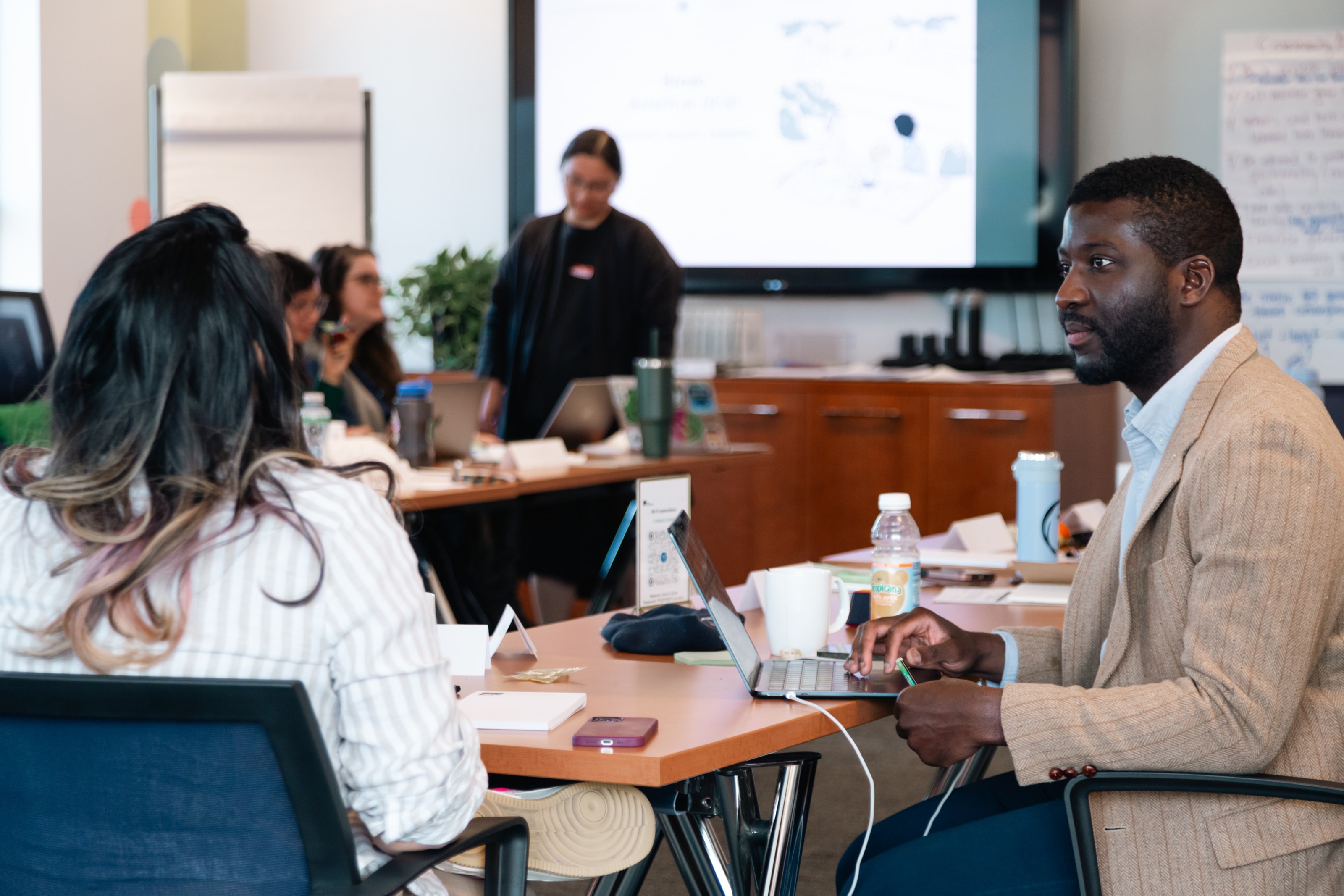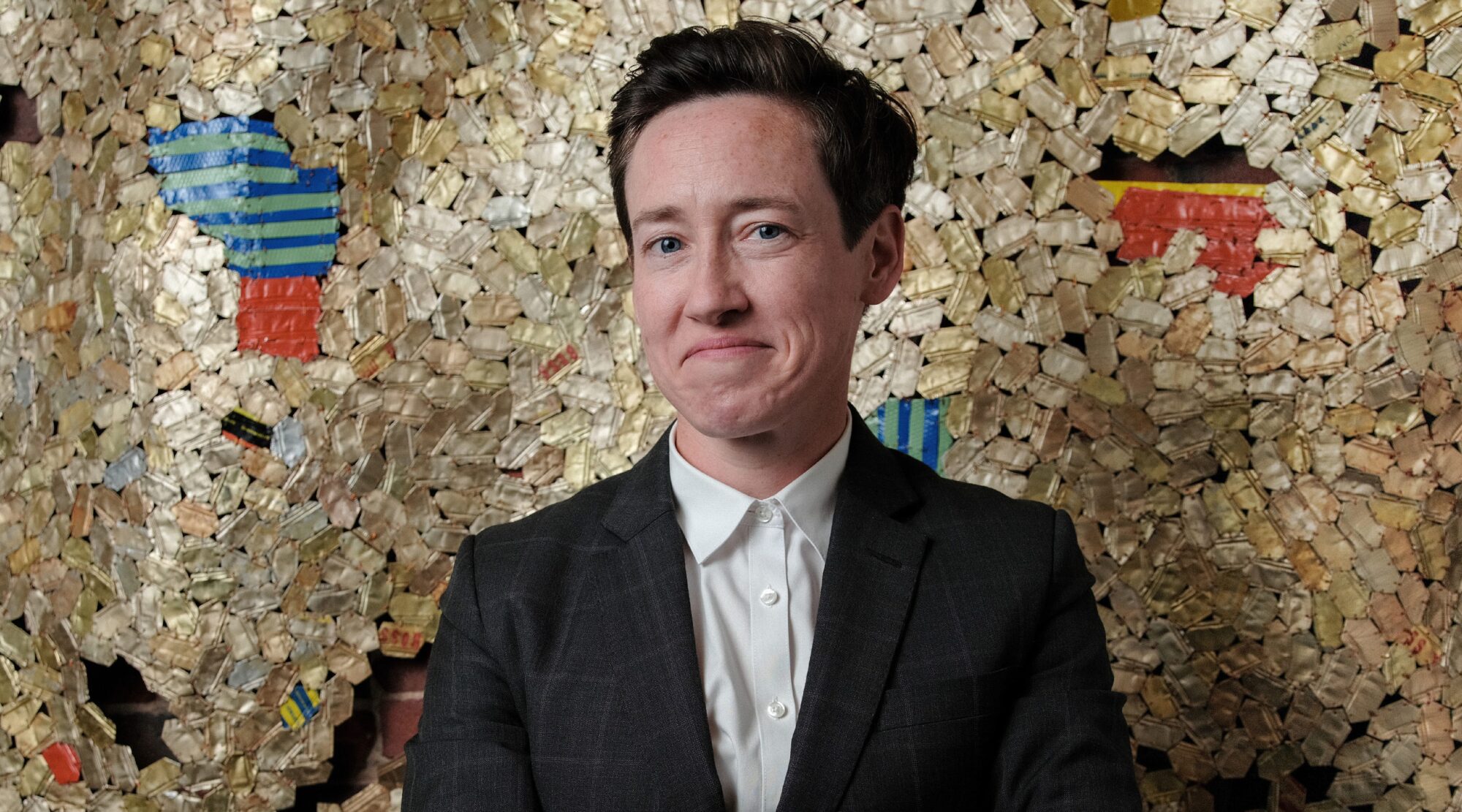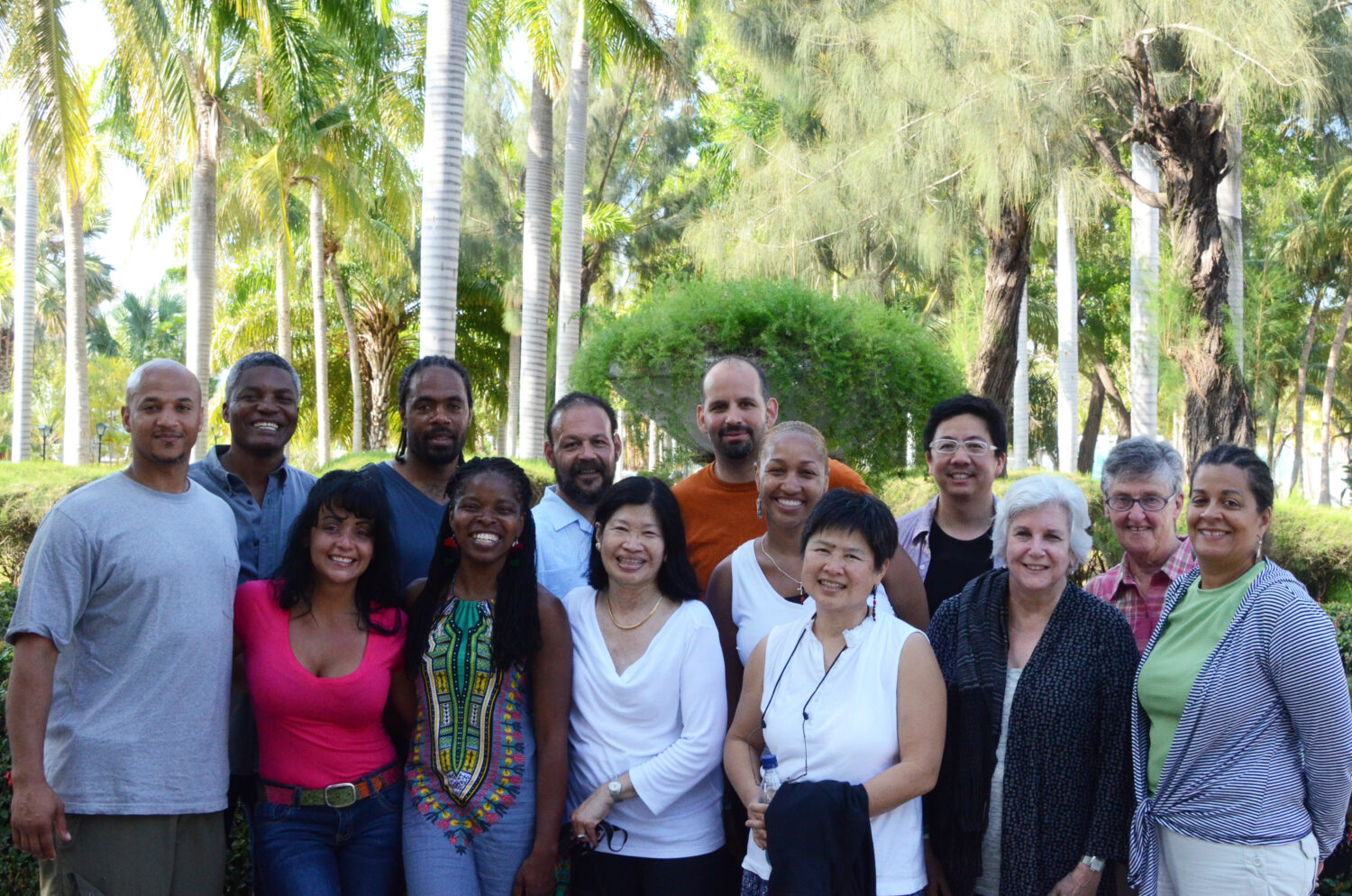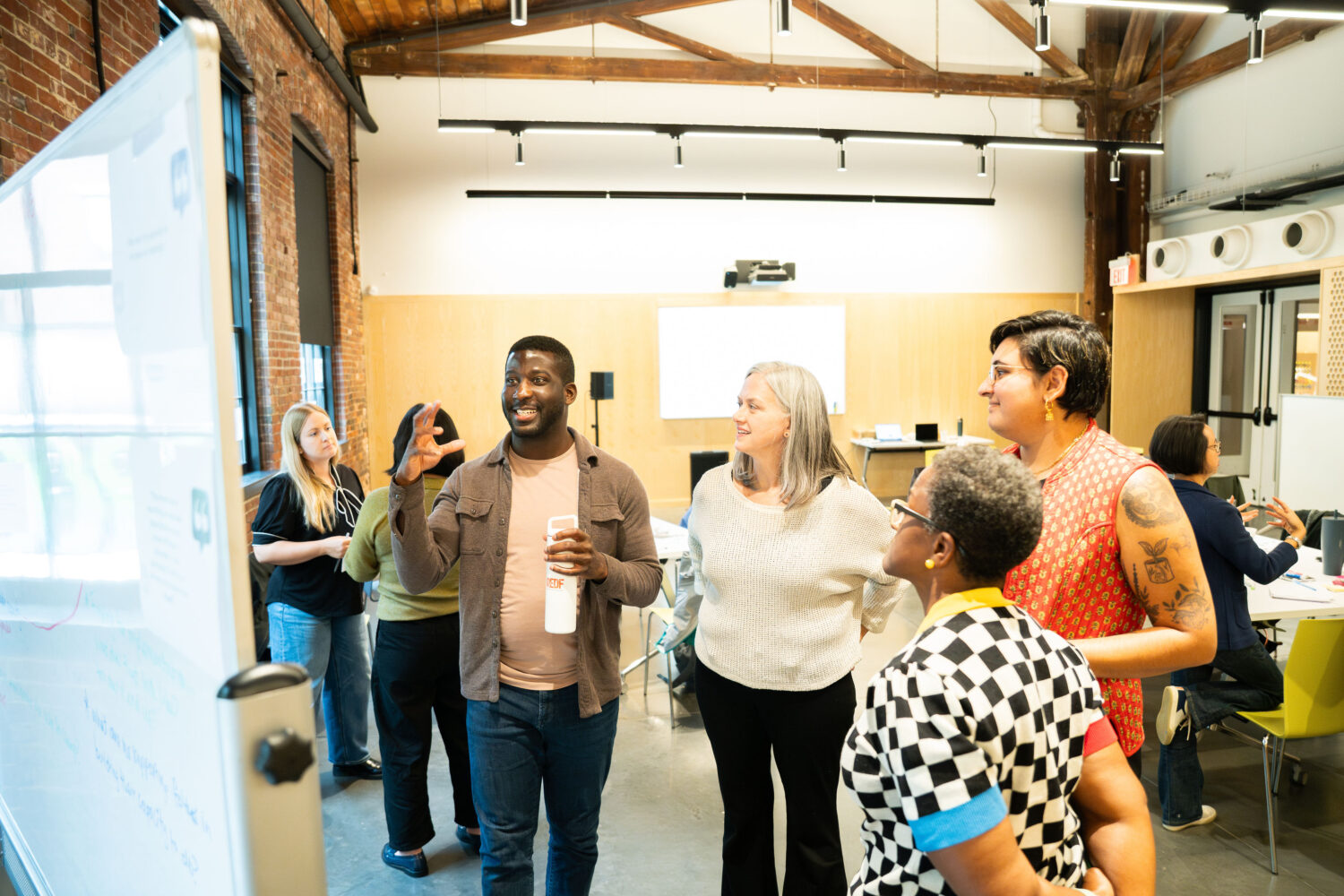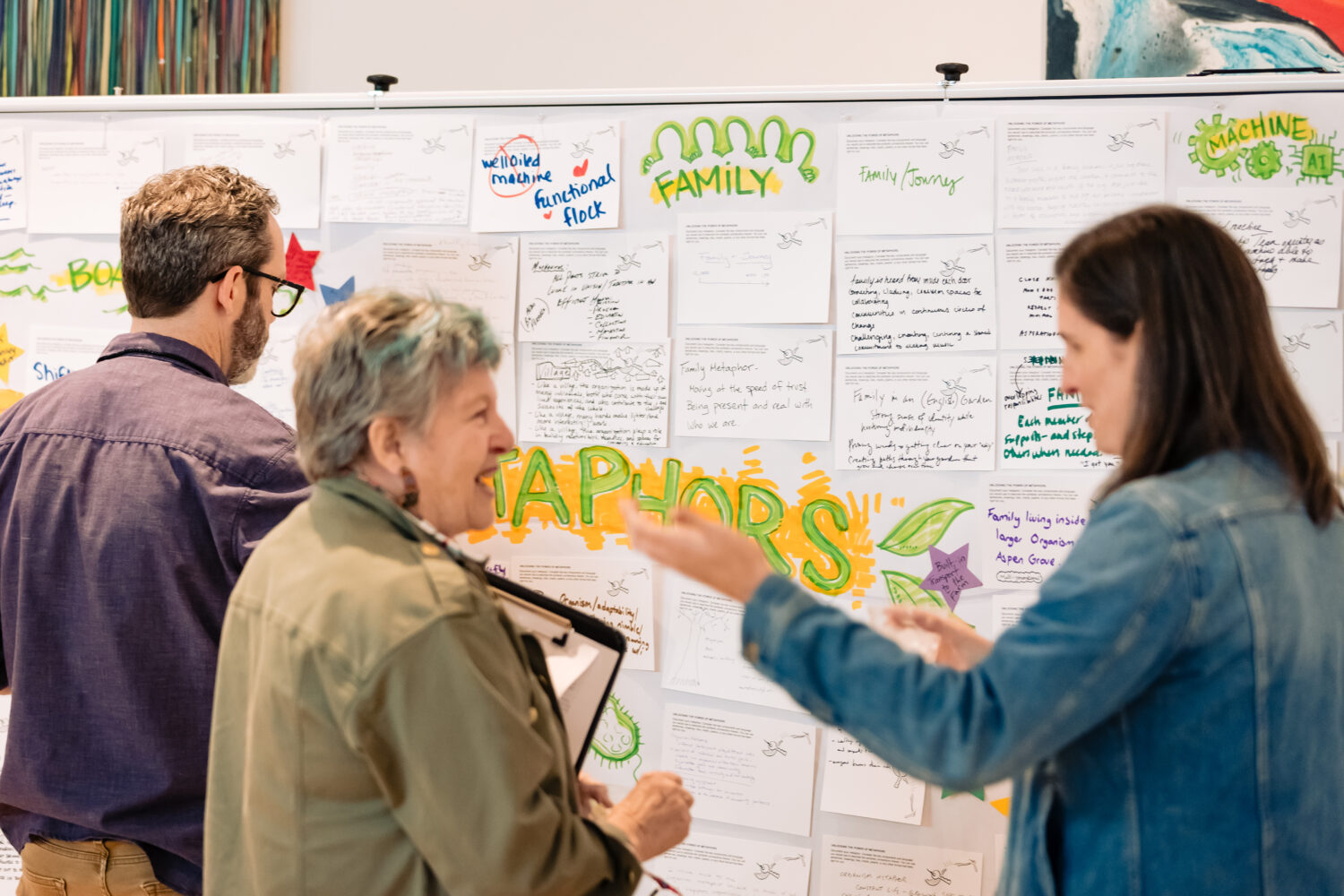The challenges facing the nonprofit sector right now are profound—funding freezes, growing concerns about safety and security, economic uncertainty, staff burnout, and so much more. Capacity building support can help nonprofits prepare for, withstand, and navigate beyond the complex conditions the sector faces today.
While ‘capacity building’ is a familiar term in the social sector, it can mean many things. For Barr, capacity building is about building the power of nonprofits to deliver on their missions, adapt to change, and mobilize resources for long-term impact.
We believe that strengthening core functions – like human resources support that helps nonprofit leaders at all levels grow; contingency planning for adapting to unpredictable environmental changes; communications that amplify organizational vision; and user-friendly technology that facilitates daily operations – can help fortify nonprofits in today’s turbulent climate.
Even before 2025’s dramatic implications for the sector, nonprofits were stretched thin. We have plenty of stories and sobering data that illustrate chronic understaffing, underfunding, and gaps in organizational infrastructure. Yet when urgent community needs arise, it’s often difficult for organizations to step back, identify their internal challenges, and prioritize addressing them, let alone find high-quality, values-aligned support.
Given Barr’s organization-wide commitment to capacity building, our Sector Effectiveness team was curious: what would it take to strengthen the nonprofit capacity building ecosystem in such a perilous time?
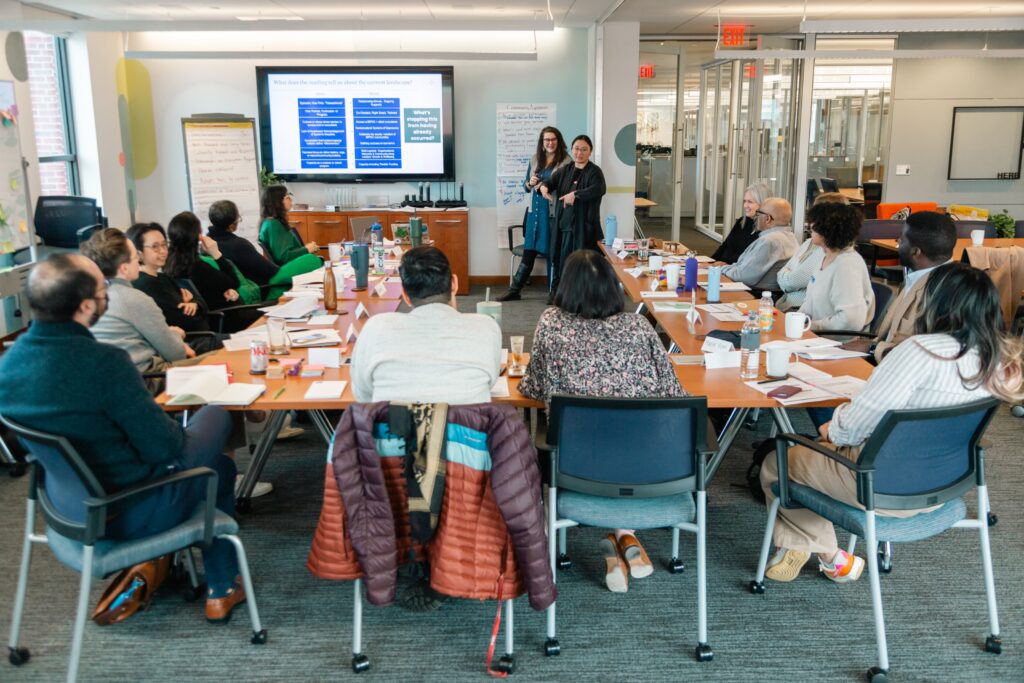
Imagining a thriving nonprofit sector
After spending 2024 developing our knowledge of the barriers to more successful capacity building through research and listening activities, this Spring the Sector Effectiveness team partnered with Systems Design Lab to convene thirteen leaders from across Greater Boston’s social sector to participate in our Reimagining Capacity Building table.
The group includes funders, nonprofit executives, capacity building providers, and consultants, all with diverse vantage points on the opportunities and challenges that shape our regional nonprofit landscape. Together, they are exploring ways to help nonprofits identify and access the supports they need, and to ensure that providers reflect today’s sector.
Our first activity together was to imagine what it would look, sound, and feel like for nonprofits in Greater Boston to thrive. Sufficient financing and resources rose to the top, as it allows organizations to deliver quality programming, plan ahead, and invest in people. The group also named things like a clear mission and vision, space for joy and humanity, and the ability to respond nimbly to shifting needs. Others lifted up relationships: trust between funders and grantees, authentic partnerships across organizations, and deep alignment with community.
These visions weren’t abstract. They were rooted in deep experience. And they remind us that capacity building is not just about improving operational systems or diversifying funding sources. It’s also about supporting organizations to do their best work on behalf of the communities they serve.
So, how do we get there?
The Reimagining Capacity Building Table has been working to identify structural and practical barriers that nonprofits encounter when trying to engage in capacity building efforts, including questions of time, trust, and readiness. The group will meet this summer and again in October to test new ideas and develop field-wide recommendations for making capacity building more equitable, accessible, and effective.
At the same time, Barr is exploring funding promising ideas that emerge from this work – such as opportunities to make it easier for nonprofits to find expert help, programs that promote learning and collaboration between capacity building providers, and efforts to create equitable and inclusive environments where nonprofit leaders can learn from experts and each other. We’re committed to learning from the table and investing in efforts that can move the needle.
Nonprofit organizations are foundational to the quality of life in Greater Boston. Whether or not we work in the sector, we all benefit from their efforts to expand opportunity. That’s why capacity building matters, and why this moment, despite (or perhaps because of) today’s challenges, is exactly the right moment to invest in it.
As we move forward, we’re holding onto this: even amid uncertainty, it’s possible to imagine and build toward something better.
Reimagining Capacity Building Table Participants
Katherine (Kathy) Asuncion
Associate Director, Resource Organizing Project, Training and Capacity Building
Sheera Bornstein
Vice President of Engagement, YW Boston
Alex Chu
Executive Director, Northeast, Reach Out and Read
Aditi Dholakia
Senior Director of Program and Strategy, Boston Women’s Fund
Leigh Handschuh
Senior Program Officer, Nonprofit Sector Infrastructure, The Boston Foundation
Ayanna Hines
President, Board of Directors, Madison Park Development Corporation
Tiffany Lau
Deputy Director, Lenny Zakim Fund
Kathy Le
Executive Director, Community Action Partners
Sandi McKinley
President, SectorWind, LLC
Diana Navarrete-Rackauckas
Executive Director, The Foundry Consortium
Andrew Spooner
Director, Catalyst Fellowship; Associate Director, Consulting; Empower Success Corps
Marvin Vilma
Founder, Bevy Studio
Ellen Wang
Senior Director, Shared Services, Third Sector New England
